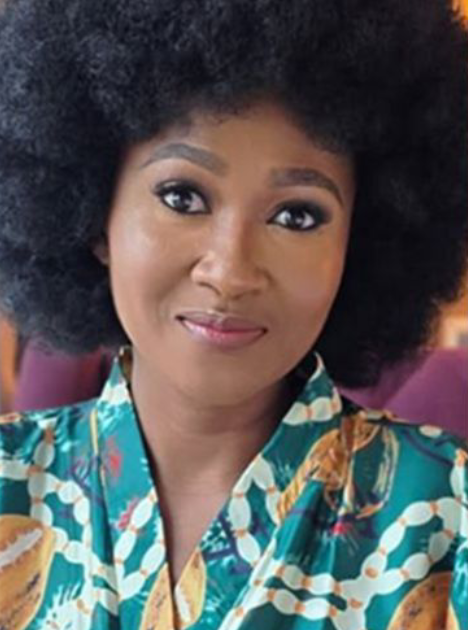
“Nigeria, We Can Do Better”: Mary Remmy Njoku Slams Culture of Celebrating Half-Hearted Efforts in Viral Rant

Nigerian actress and filmmaker Mary Remmy Njoku has ignited a nationwide conversation after taking to social media to question why Nigerians continue to celebrate partial effort instead of demanding excellence. In a post that has quickly gone viral, Njoku expressed deep frustration over a growing culture she believes is holding the country back, calling out the widespread acceptance of mediocrity and the constant glorification of minimal effort packaged as achievement. Her words have sparked debates across online communities, with many Nigerians echoing the same sentiment: that the nation has the talent, intelligence, and capacity to thrive, but repeatedly settles for far below its potential.
Njoku, who is known for her outspoken nature and advocacy for quality in the creative industry, did not mince words. She wrote, “Why do we celebrate partial effort in this country? There’s this mentality of ‘at least he tried’ or ‘manage it like that.’ Instead of pushing for full execution. We have the talent, the intelligence, and the capacity for excellence but settle for 40%. Shame.” Her bold critique reflects what many Nigerians have quietly endured for years — a frustrating, systemic tolerance for inadequacy that has become deeply ingrained in both public and private sectors.
In another part of her post, she added, “It’s frustrating. When you’ve lived so long seeing roads patched instead of rebuilt, policies announced but not implemented, or services working only ‘sometimes,’ your mind begins to accept it as normal. It is NOT normal!” The statement resonated widely, drawing reactions from citizens who immediately cited various national issues as examples of the mediocrity the actress described.
Across social media, users shared personal experiences ranging from unreliable electricity supply to poorly executed projects, slow government response to public issues, fluctuating quality of goods and services, and even everyday interactions where people accept subpar treatment simply because “that’s how things work here.” The overwhelming consensus was that Njoku had voiced what millions have been thinking but often feel helpless to address: a systemic lowering of standards that has gradually become embedded in the national psyche.
Observers say Njoku’s statement is coming at a time when Nigerians are increasingly demanding higher accountability from leaders, institutions, and even service providers. Her remarks highlight a deeper societal problem — a collective psychological shift where poor performance is normalized, excuses become acceptable, and full potential is rarely pursued because people have grown accustomed to disappointment. Analysts argue that this mindset is one of the biggest obstacles to national growth, as a society that expects little often receives little.
What makes Njoku’s message even more impactful is that it touches on both governmental and personal responsibility. While many Nigerians quickly blamed political leaders, others noted the issue also reflects in daily habits: artisans who deliver unfinished work, businesses that lack quality control, students who aim only for pass marks, and citizens who shrug off avoidable problems because fighting for better seems exhausting. The actress’ rant served as a mirror, showing that while leadership failures remain a huge concern, the everyday acceptance of mediocrity at individual and community levels also contributes to the broader national problem.
In several comment threads responding to her post, people highlighted how the “at least he tried” mentality has damaged collective progress. They argued that this mindset encourages complacency, reduces innovation, and ultimately prevents Nigeria from achieving the kind of excellence other nations demand as a baseline. Some users pointed out that societies known for world-class performance do not applaud mere effort — they celebrate results. In contrast, Nigeria often rewards people simply for showing up, even when the outcome falls far below standard.
Njoku’s criticism also touched the entertainment industry, though she didn’t mention it directly. Many fans familiar with her career noted that she has been one of the few pushing for high-quality productions and professional standards in Nollywood. Some creatives praised her for speaking out, saying the culture of accepting anything just because it is “Nigerian-made” has stunted the industry’s growth and reduced global competitiveness. They argued that as long as audiences continue to accept subpar content with excuses like “they tried,” creators will have little incentive to strive for excellence.
As discussions surrounding Njoku’s comments grew, some Nigerians shifted the focus to national leadership, calling on public officials to take accountability for substandard projects and inconsistent governance. They noted the irony of a country with abundant human and natural resources repeatedly failing to implement sustainable development plans. Critics say this is largely because the bar is set so low that even partial progress is celebrated as achievement. Njoku’s message, they argued, is a wake-up call for citizens to stop applauding minor improvements that fall far short of meaningful progress.
However, not everyone agreed with her tone. A few commenters suggested her message came off as harsh, arguing that many Nigerians operate under challenging conditions where “partial effort” is sometimes the best they can do with limited resources. They said the focus should be on improving systems rather than criticizing individuals trying to survive within them. But even among this group, there was acknowledgment that Nigeria’s potential remains largely untapped and that expecting more from institutions and leaders is necessary.
Still, the overwhelming majority praised Njoku’s courage in addressing an issue many consider sensitive. They admired her refusal to accept mediocrity in a country that desperately needs a shift in mindset. Some called on influential figures in government, business, education, and entertainment to amplify her message and advocate for a nationwide cultural reset — one that prioritizes quality, consistency, and excellence over excuses.
One striking observation from the online debate was that Nigerians do not lack awareness of the problem. Rather, they lack platforms where such frustrations can be openly expressed without fear of backlash or dismissal. Njoku’s platform allowed that conversation to flourish, reminding many that change often begins when respected voices speak out. Her insistence that the current state of affairs “is NOT normal” became a rallying cry for many who feel trapped in a cycle of lowered expectations.
For many Nigerians, Njoku’s post served as a powerful reminder that excellence is possible and that the country’s longstanding acceptance of mediocrity is not destiny, but a mindset that can be challenged and changed. Her words carried an urgent call for self-reflection: If Nigeria truly has the talent, intelligence, and capacity she says it does, then the nation must begin to demand better — from leaders, from systems, and from themselves.
Whether Njoku’s rant becomes a turning point or simply another viral moment remains to be seen. But one thing is clear: she has pushed a button that needed pushing. Nigerians are talking, reflecting, debating, and questioning the standards they have tolerated for far too long. And in a country where meaningful transformation often starts with conversation, that alone is a step toward the excellence she believes Nigeria deserves.


